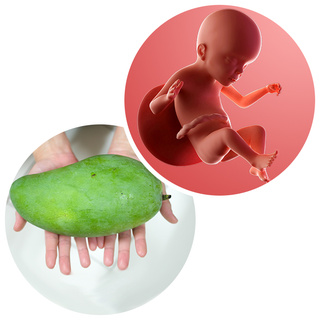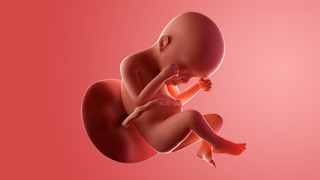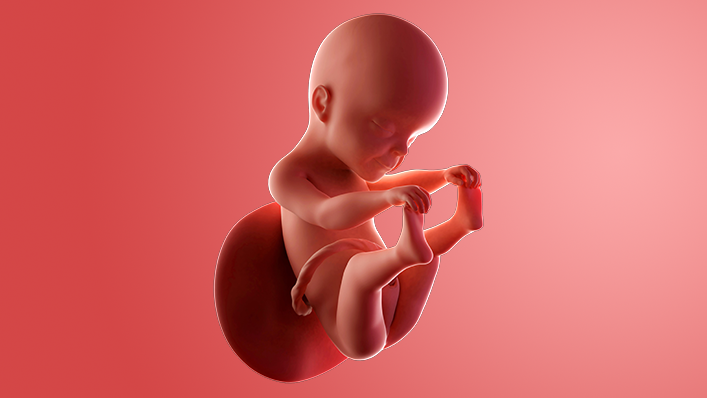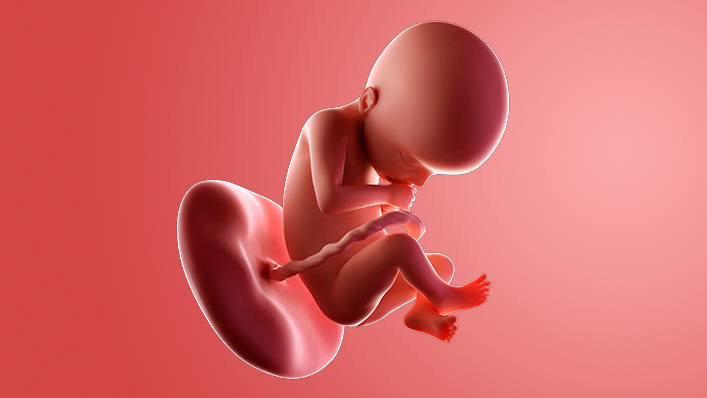- Week 13
- Week 14
- Week 15
- Week 16
- Week 17
- Week 18
- Week 19
- Week 20
- Week 21
- Week 22
- Week 23
- Week 24
- Week 25
- Week 26
- Week 27
Week 23
Week by week, you're hitting new milestones in your pregnancy as your baby prepares for life outside the womb.
Around this time, your baby is practising breathing, and getting into patterns of sleeping and waking.
What's happening in my body?
Your breasts may start leaking colostrum, which is an early type of milk. Breast milk gives your baby a good start by boosting their immunity so they can fight off infections. Find out more about breastfeeding.
This week, you may start to get rib pain as your rib cage expands to accommodate your bump. You could be feeling a bit more breathless than usual as the growing baby puts pressure on your lungs.
The best remedy is to put your feet up and relax. If you're worried about any symptoms of pregnancy, talk to your midwife or doctor.
Whooping cough vaccination
Have you had the whooping cough vaccine? It's usually offered to pregnant women at around week 20 but you can have it from week 16 to week 32.
Whooping cough is on the rise – but you can protect your baby from this dangerous condition by having a vaccination. If you have not had it yet, speak to your midwife or a GP.
Read more about whooping cough vaccination in pregnancy on NHS.UK.
Stay sun safe
Did you know that even on a cloudy day, your skin could burn? Unfortunately, this is more likely to happen when you're pregnant, as your skin is more sensitive.
Cover up and head for the shade if you're going outdoors when the sun is at its strongest. That's between 11am and 3pm, from March to October.
Remember to:
- choose a high-factor suncream (15+) with at least 4-star UVA protection
- apply a thick layer of suncream to all exposed skin
2nd trimester pregnancy symptoms (at 23 weeks)
It is really important to look after your mental health before, during and after pregnancy. Tommy’s has created a tool to help you make a wellbeing plan online.
It will help you start thinking about how you feel emotionally and what support your might need in your pregnancy and after the birth.
This week, your signs of pregnancy could also include:
- tiredness and sleeping problems (week 19 has information about feeling tired)
- stretch marks (read about stretch marks on week 17's page)
- swollen and bleeding gums (week 13 has information about gum health during pregnancy)
- pains on the side of your baby bump, caused by your expanding womb ("round ligament pains")
- piles (read about piles on week 22's page)
- headaches
- backache
- nosebleeds
- indigestion and heartburn (week 25 talks about digestive problems)
- bloating and constipation (read about bloating on week 16's page)
- leg cramps (week 20 explains how to deal with cramp)
- feeling hot
- dizziness
- swollen hands and feet
- urine infections
- vaginal infections (see week 15 for vaginal health)
- darkened skin on your face or brown patches – this is known as chloasma or the "mask of pregnancy"
- greasier, spotty skin
- thicker and shinier hair
You may also experience symptoms from earlier weeks, such as:
- mood swings (week 8's page has information on mood swings)
- morning sickness (read about dealing with morning sickness on week 6's page)
- weird pregnancy cravings (read about pregnancy cravings on week 5's page)
- a heightened sense of smell
- sore or leaky breasts (read about breast pain on week 14's page) - a white milky pregnancy discharge from your vagina and light spotting (seek medical advice for any bleeding)
What does my baby look like?
Your baby, or foetus, is around 28.9cm long from head to heel. That's approximately the size of a large mango.
Your baby's limbs are now in proportion. Over the next few weeks, you're going to be kicked around by your baby and will start to see your tummy move too, which looks very strange.
Get to know your baby's rhythms and talk to your midwife if the kicking slows down. Have a look at Tommy's guide to baby movements in pregnancy.

Action stations
Are you drinking lots of tea and coffee? This week, why not make a real effort to swap your cuppas for alternatives such as smoothies and fruit teas.
You can check your caffeine intake with Tommy's Caffeine Calculator.
This week you could also…
Losing a baby
Sadly, not all pregnancies go to plan, and some women and their partners have to cope with the tragic loss of their baby. Before 24 weeks, it's called a miscarriage. After that, it's a stillbirth.
This can be a huge shock, but there are trained people who can support you through grief after bereavement or loss.
More in week-by-week

Week 24
Your baby is now considered "viable", which means they could survive if they were born right now and given the right support.
More in week-by-week guide to pregnancy


